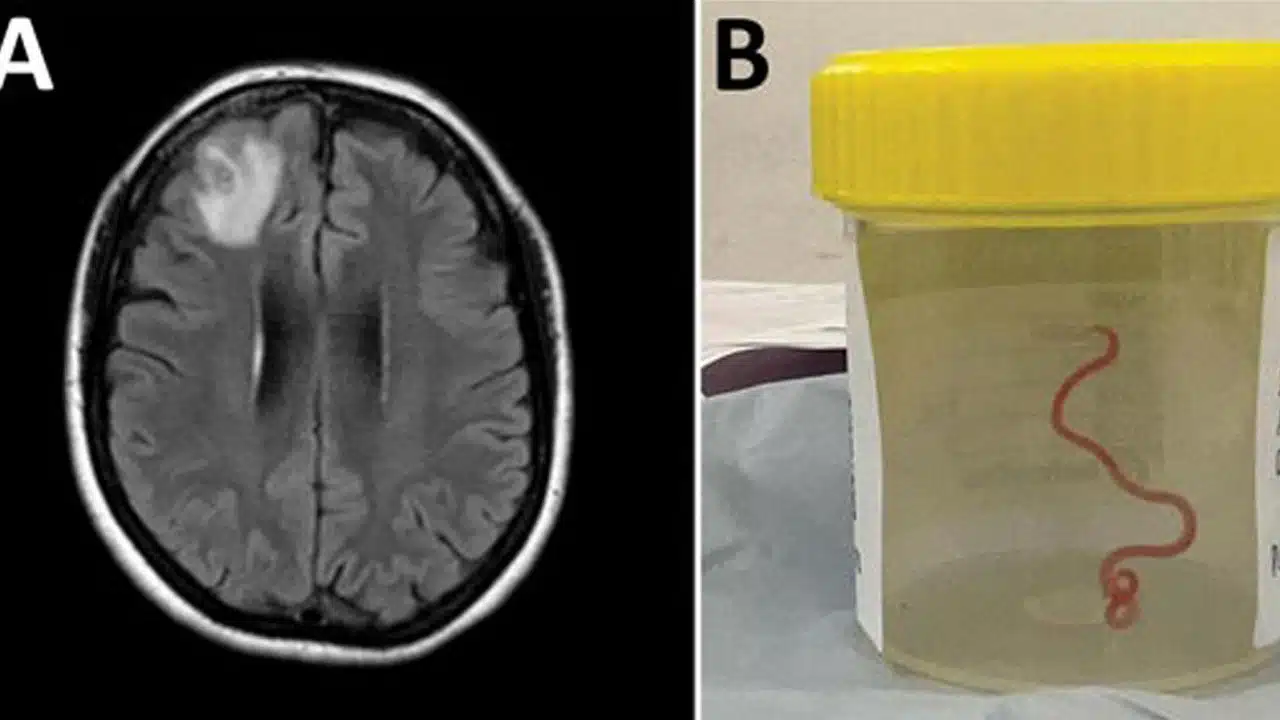Doctors in Australia have successfully removed a live parasitic worm from a woman’s brain, marking the first known case of its kind in the world, News About Nigeria reports.
The worm which was approximately 8 centimeters (3 inches) long, was extracted alive by surgeons at Canberra Hospital. The worm was identified as Ophidascaris robertsi, a roundworm that is usually found in pythons.
The 64-year-old patient lived near a lake area inhabited by carpet pythons in southeastern New South Wales (NSW) and it is believed that she caught the roundworm after foraging Warrigal greens, a native leafy vegetable, which she cooked and ate.
The doctors and scientists involved in her case theorized that a carpet python might have spread the parasite via its feces into the greens, which the patient then touched and cross-contaminated with food or other cooking utensils.
Doctor Yasmin Afsar, one of the neurosurgeons who performed the operation, said that the worm was “very much alive” when it was removed from the patient’s brain.
“It was wriggling and moving around,” she said. “It was quite an unusual sight to see something like that coming out of someone’s head,” she added.
This groundbreaking medical discovery has led to a mad scramble to find out more about the parasite and how it can be prevented.
Afsar has urged people to take precautions when handling food and to seek medical attention if they experience any unusual symptoms. He also cautioned that this is an extremely rare occurrence and should not cause undue alarm.
The case has also raised questions about the safety of foraging wild foods. While foraging can be a fun and rewarding activity, it has now been scientifically proven that more precautions should be taken when handling wild foods.
Experts recommend washing all wild foods thoroughly before cooking or eating them.













